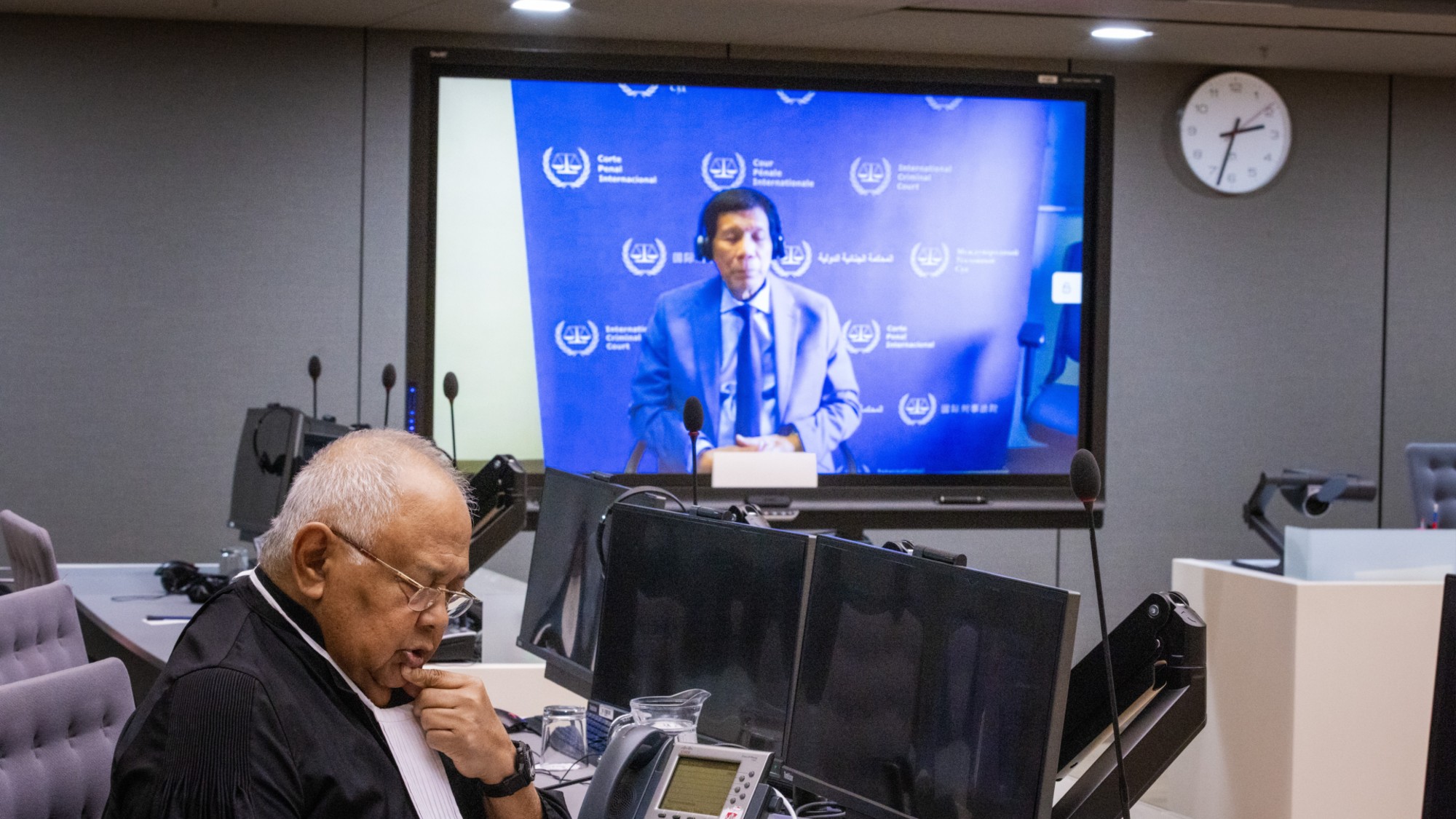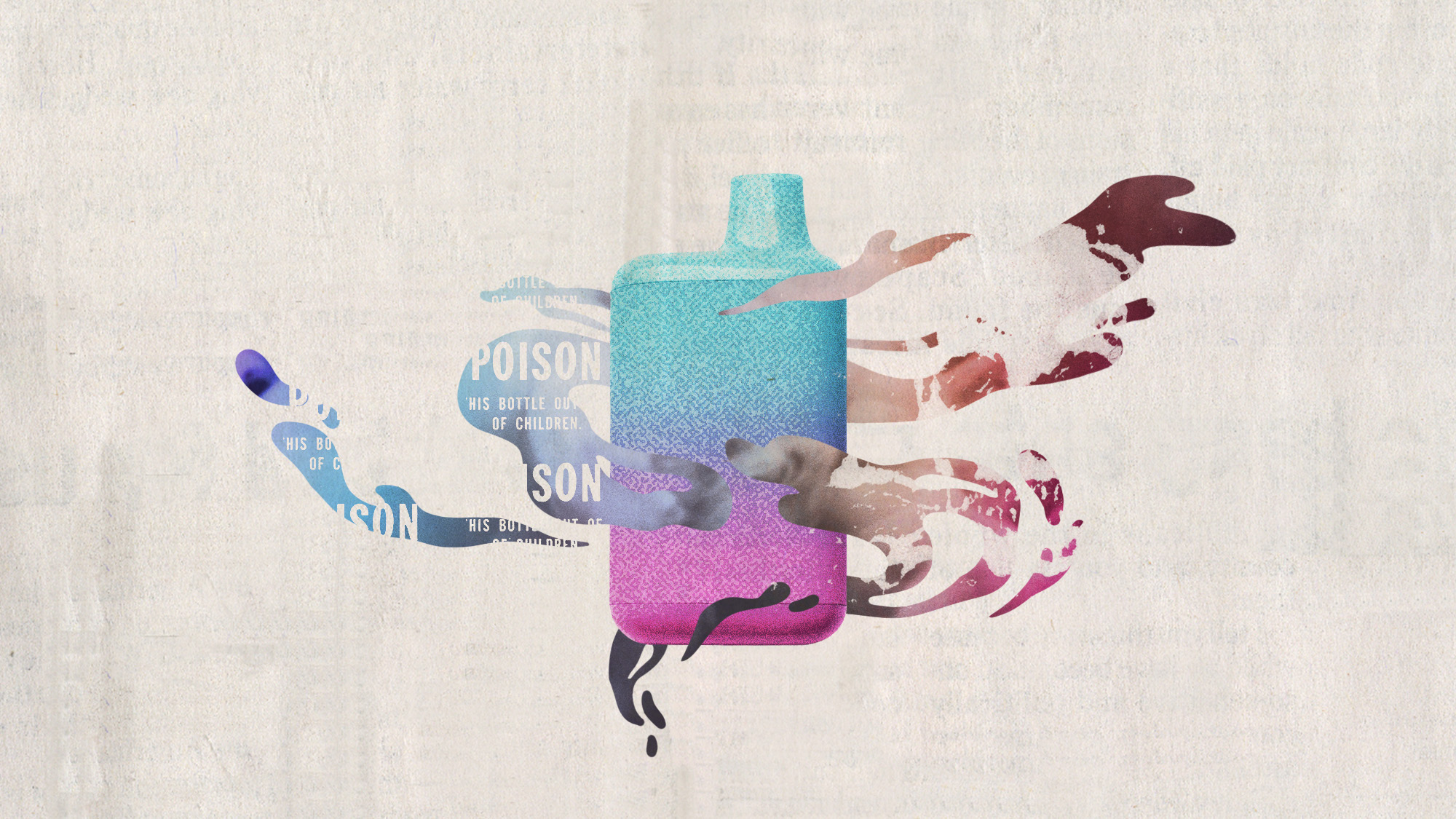The arrest of the Philippines' former president leaves the country's drug war in disarray
Rodrigo Duterte was arrested by the ICC earlier this month


A free daily email with the biggest news stories of the day – and the best features from TheWeek.com
You are now subscribed
Your newsletter sign-up was successful
Rodrigo Duterte was arrested by the International Criminal Court on March 11 on the charge of "murder as a crime against humanity." But while the Philippines' ex-president may face punishment for his alleged actions, the country's war on drug trafficking that led to his arrest may have a more complex fix than putting Duterte in handcuffs.
Duterte has been charged by the ICC for allegedly ordering the systemic, extrajudicial killings of Filipinos accused of dealing drugs. Current Philippine President Ferdinand "Bongbong" Marcos Jr. has also prioritized the nation's drug problem, but some legal analysts say Duterte's arrest may not be the solution.
Allegedly thousands killed
Duterte was an "indirect co-perpetrator for the crime against humanity of murder, allegedly committed in the Philippines," said the ICC. Duterte first instituted the war on drugs upon taking office, claiming that thousands of Filipinos were guilty of drug trafficking crimes.
The Week
Escape your echo chamber. Get the facts behind the news, plus analysis from multiple perspectives.

Sign up for The Week's Free Newsletters
From our morning news briefing to a weekly Good News Newsletter, get the best of The Week delivered directly to your inbox.
From our morning news briefing to a weekly Good News Newsletter, get the best of The Week delivered directly to your inbox.
He is accused of being criminally responsible for 43 murders from 2011 to 2019, a time in which he was mayor of the city of Davao and later president. But the total number of deaths during his rule is allegedly much higher; his war on drug trafficking "involved the extrajudicial killings of somewhere between 6,000 and more than 12,000 people, mostly urban working-class and poor," said The Nation. The victims were "described by police as 'drug suspects'; all were deprived of due process." The dead reportedly included children as young as 3.
A complex problem
If Duterte is brought to trial, it likely will not be until 2026. The country's drug war hasn't fully stopped since Marcos Jr. became president; he "often spoke about winding down the bloody and brutal drug war initiated by his predecessor," but he has "maintained Duterte's bloody drug war," said the Council on Foreign Relations.
And while Duterte's arrest is an "exceedingly rare case of the international justice system holding a strongman accountable," said Foreign Policy, it may not have a wider effect in the Philippines. It will be "difficult for the families of drug war victims to bring cases against members of the Philippine National Police," many of whom are alleged to have actually carried out the killings.
The Philippines needs "laws that will rebuild and strengthen institutions to make sure that they can withstand the next time another Duterte comes along," said Leila de Lima, a former Philippine senator, to Foreign Policy. But the country's government is still filled with supporters of Duterte, many of whom "still hold considerable political power," Joel Ariate, a researcher at the University of the Philippines, said to the outlet.
A free daily email with the biggest news stories of the day – and the best features from TheWeek.com
Duterte's daughter Sara Duterte is also the Philippines' current vice president and is leading in the polls to replace Marcos Jr. as president. Despite being a key part of his administration, she has "railed against him, saying that she wanted to cut his head off and threatening to dig up his father's body and throw it into the ocean," said The New York Times.
All of these factors have led to a complex chain of events in the Philippines, leaving the future of the drug war uncertain. Marcos is "gambling that he can eliminate the Dutertes as a political force without any major backlash," said the Times. The "issue is now likely to be front and center during the midterm elections, seen as a proxy battle between the Marcoses and the Dutertes."
Justin Klawans has worked as a staff writer at The Week since 2022. He began his career covering local news before joining Newsweek as a breaking news reporter, where he wrote about politics, national and global affairs, business, crime, sports, film, television and other news. Justin has also freelanced for outlets including Collider and United Press International.
-
 Political cartoons for February 15
Political cartoons for February 15Cartoons Sunday's political cartoons include political ventriloquism, Europe in the middle, and more
-
 The broken water companies failing England and Wales
The broken water companies failing England and WalesExplainer With rising bills, deteriorating river health and a lack of investment, regulators face an uphill battle to stabilise the industry
-
 A thrilling foodie city in northern Japan
A thrilling foodie city in northern JapanThe Week Recommends The food scene here is ‘unspoilt’ and ‘fun’
-
 Epstein files topple law CEO, roil UK government
Epstein files topple law CEO, roil UK governmentSpeed Read Peter Mandelson, Britain’s former ambassador to the US, is caught up in the scandal
-
 Mexico’s vape ban has led to a cartel-controlled black market
Mexico’s vape ban has led to a cartel-controlled black marketUnder the Radar Cartels have expanded their power over the sale of illicit tobacco
-
 Iran and US prepare to meet after skirmishes
Iran and US prepare to meet after skirmishesSpeed Read The incident comes amid heightened tensions in the Middle East
-
 Grok in the crosshairs as EU launches deepfake porn probe
Grok in the crosshairs as EU launches deepfake porn probeIN THE SPOTLIGHT The European Union has officially begun investigating Elon Musk’s proprietary AI, as regulators zero in on Grok’s porn problem and its impact continent-wide
-
 Israel retrieves final hostage’s body from Gaza
Israel retrieves final hostage’s body from GazaSpeed Read The 24-year-old police officer was killed during the initial Hamas attack
-
 China’s Xi targets top general in growing purge
China’s Xi targets top general in growing purgeSpeed Read Zhang Youxia is being investigated over ‘grave violations’ of the law
-
 Panama and Canada are negotiating over a crucial copper mine
Panama and Canada are negotiating over a crucial copper mineIn the Spotlight Panama is set to make a final decision on the mine this summer
-
 Why Greenland’s natural resources are nearly impossible to mine
Why Greenland’s natural resources are nearly impossible to mineThe Explainer The country’s natural landscape makes the task extremely difficult
